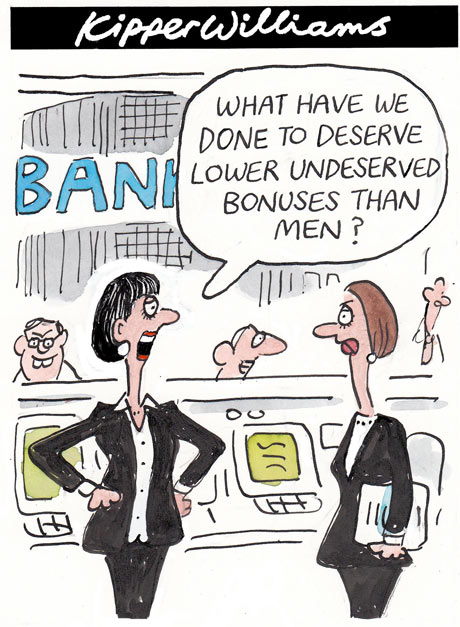
Here's my Top 10 links from around the Internet at midday today.
As always, we welcome your additions in the comments below or via email to bernard.hickey@interest.co.nz.
See all previous Top 10s here.
My must reads are #1 and #2 from the FT on China's Debt Dragon. It's a cracking series of articles and charts. #8 on the same topic from the WSJ is excellent too.
1. China's debt addiction - The FT is running a useful series on 'The Debt Dragon' in China.
I've been hammering away at this issue for a few months now. It may not signal the end of the China miracle and plenty of Chinese experts think the Chinese government can manage its way through any bad debt or bad bank type cleanups.
It's also dangerous to suggest that China will go into reverse or stop growing because of this growing debt overhang.
But the whole issue certainly needs to be watched careful, particulary now China is New Zealand's largest trading driver in a direct and indirect (via Australia) sense.
Trade Minister Tim Groser makes some good points in a bullish speech this morning about China, but still we have to be a little bit cautious about unbroken growth forever from the Magic Kingdom.
Here's the FT, which starts like this:
The Chinese government says its debt problem is under control, but the people of Pianpo village have cause to disagree. Over the past year they have seen their water cut off, rubbish pile up in the streets and their wages go unpaid as debt has mounted.
For most of its past 30 years of growth averaging 10.5 per cent, China did not rely on credit. But it has become ever more reliant on debt since the global financial crisis, drawing on banks, bonds and an array of lightly regulated institutions to keep its economy roaring.
The trail of debt in China starts on the desks of ambitious government officials, especially at the municipal level. Capital of the southwestern province of Guizhou, Guiyang is one of China’s poorer cities, but it has boomed in recent years – and it is a prime example of its debt-fuelled economic model. “We need to struggle for GDP,” Yuan Zhou, Guiyang’s then mayor, thundered in a radio interview in 2011. “Only with higher GDP will people’s lives be improved.”
To stimulate growth, local officials deployed a simple technique, one replicated throughout the country. The government appropriated rural land on the cheap from farmers, sold it to property developers at a mark-up, and the developers in turn built dense clusters of tower blocks.
2. Part II - Here's the 2nd part of the FT's Debt Dragon series, which starts with a look at an indebted chemical producer with coking coal stockpiles, which is enlightening given the link I put in yesterday to the piece about China's coal mountain and the problems Solid Energy is having. It also helps explain the huge spare production capacity which is driving prices for manufactured goods down all around the world.
“Lots of Chinese companies rushed to expand, to be the biggest in the world. This was a source of great pride. Now we see it as a headache,” says a soft-spoken Yunwei executive, back from a business trip where he was trying to sell more of the hard black coking coal piled high in the company’s storage facility in Qujing in the southwestern province of Yunnan.
The Shanghai-listed company never quite cracked the top tier of the chemical industry in China, let alone the world, but it was not for a lack of trying. It increased its assets 30-fold over the past decade in a spree of investment, building an ethyl acetate factory, a calcium carbide production line, a coal distillation plant and lots more.
4. Asia's new palaces - New Zealand hopes to thrive on the demand for protein from Asia's new middle classes as they learn to shop until they drop in a series of massive mega-malls.
Here's Quartz on an extraordinary boom in these palaces to consumption. It asks whether Asia has already hit 'Peak Mall'.
No matter how fast China’s middle class grows, it cannot sustain a city like Chengdu having four times as many malls as similarly sized Los Angeles. Despite government attempts to spur consumer spending, retail sales are already slowing. Foreign luxury brands are making money, but margins are thin, or negative, at stores targeting middle and lower-class Chinese.
All this evidence points to the fact that peak-mall in Asia may be closer than people think. In Jakarta, despite the crowds that pack Pacific Place and its now popular @America center every weekend, the young, consumer-savvy urban population is seeking something different. In one of this first decisions after being elected, the new, young, and incredibly popular Mayor of Jakarta, Joko Widodo, whose no-nonsense attitude and unwavering dedication to fighting corruption have many calling him “Indonesia’s Obama,” put in place a moratorium on new shopping malls, a decision received with popular support.
5. Macroprudential policy in America - New Zealand has talked of little else in recent weeks. Now the 'Grumpy Economist' in America, John Cochrane, talks about the moves towards such policy in America too. HT Matt.
Interest rates make the headlines, but the Federal Reserve's most important role is going to be the gargantuan systemic financial regulator. The really big question is whether and how the Fed will pursue a "macroprudential" policy. This is the emerging notion that central banks should intensively monitor the whole financial system and actively intervene in a broad range of markets toward a wide range of goals including financial and economic stability.
For example, the Fed is urged to spot developing "bubbles," "speculative excesses" and "overheated" markets, and then stop them—as Fed Governor Sarah Bloom Raskin explained in a speech last month, by "restraining financial institutions from excessively extending credit." How? "Some of the significant regulatory tools for addressing asset bubbles—both those in widespread use and those on the frontier of regulatory thought—are capital regulation, liquidity regulation, regulation of margins and haircuts in securities funding transactions, and restrictions on credit underwriting."
6. 'Protect brand integrity' - Brian Fallow has a nice interview in the NZHerald with Alan Bollard, who is now the head of the APEC Secretariat. Bollard points out the rise of the emerging markets' middle classes is a good thing, but does reinforce the need to protect our brands.
One consequence of the more discriminating consumer was a need to protect the integrity of brands.
"I saw the botulism scare making headlines in every major newspaper. Some of them seem to have got the facts right. Some didn't. But there was one message in there and it wasn't a good one for New Zealand. I guess we have all learned just how viral that sort of reputational damage can be."
7. Slower growth not a problem - Bloomberg reports China can handle a slide in its growth rate towards 6% without increasing unemployment because of China's ageing population and the changing mix of job creation.
China’s declining working-age population and a jump in jobs in labor-intensive service industries such as logistics may help to limit unemployment in coming years. Swelling local-government debt and environmental degradation underscore the case for letting growth settle at a slower pace than the investment-driven 9.3 percent average of the past five years.
“We have a shrinking workforce that’s unfavorable for headline growth but favorable from an employment standpoint,” said Andrew Polk, an economist in Beijing with The Conference Board, a New York-based research group. “As the economy shifts towards services, which are more labor-intensive and less productive, you can have slower growth but still have robust job creation.”
8. Why Chinese debt matters - The WSJ explains with some stark figures why the explosion in Chinese debt in recent years does matter. I've highlighted the key factoids.
Nationwide, four-and-a-half years of breakneck growth in lending has significantly increased China's debt burden. Outstanding borrowing by businesses and households rose to 170% of gross domestic product at the end of 2012 from 117% in 2008, according to data from the Bank for International Settlements. The 2012 figure for the U.S. was 157%.
Assuming interest rates of 6.9% on outstanding credit—the average in June—and repayment over the next decade, interest and principal payments on business and household debt currently absorb around a third of China's GDP. At the end of 2007, on the eve of the financial crisis, the equivalent debt-service ratio for the U.S. was 21%, a figure that was broadly unchanged at the end of 2012, according to the BIS.
There are few signs of imminent crisis. Bad debt levels in China's banks are low. A high savings rate means bank deposits continue to accumulate, and a tightly controlled capital account makes it hard for funds to go anywhere else. And Beijing has multiple tools to manage problems. In many cases, lenders and borrowers are both state-owned. Central government debt is low.
Even without a crisis, though, rising costs of repayment still threaten to choke growth, already testing a 20-year low. If money is used to service debt, companies can't invest as much as they otherwise would and local governments might have to limit what they spend on crucial public services. Heavily indebted companies and governments are more likely to default, especially if economic growth continues to slow.
China also appears to be getting less bang for every dollar that is borrowed. Credit expanded about 20% year on year in the first half of 2013, while GDP increased just 7.6%. One possible reason: New debt is being used to repay interest on loans rather than make productive investments.
9. Some light relief - The trial of fallen Chinese princeling Bo Xilai has been extraordinary. The fact we are seeing it is almost as important as the detail itself.
Here's a sample via John Garnault at TheAge.com.au:
Bo's police chief and enforcer, Wang Lijun, was a "vile" compulsive liar, said Bo, before arguing in court over whether Bo had merely slapped Wang or punched him so hard that fluid was leaking from his ear and blood from his mouth. Bo's own wife, Gu Kailai, had "gone mad and always lies," he said, explaining why her testimony against him was unreliable. He said their relationship had been strained for more than a decade because "she was angry with me over an affair."
10. Totally The Daily Show with a collection of Jon Stewart's bad accents.
3 Comments
1 day ago
That whole Middle East deal sure can be confusing. Thankfully, in this concise and clearly articulated letter to the editor published in the Financial Times, Mr KN Al-Sabah, of London, lays it all out in a way anyone can understand. In full, his letter, entitled "A Short Guide to the Middle East," read:
Sir, Iran is backing Assad. Gulf states are against Assad!
Assad is against Muslim Brotherhood. Muslim Brotherhood and Obama are against General Sisi.
But Gulf states are pro Sisi! Which means they are against Muslim Brotherhood!
Iran is pro Hamas, but Hamas is backing Muslim Brotherhood!
Obama is backing Muslim Brotherhood, yet Hamas is against the US!
Gulf states are pro US. But Turkey is with Gulf states against Assad; yet Turkey is pro Muslim Brotherhood against General Sisi. And General Sisi is being backed by the Gulf states!
Welcome to the Middle East and have a nice day.
Cheers Tony....ha ha ha!! beautiful....and a perfect demonstration on just why the U.S. can't be freinds with everyone at the same time....or indeed their big brother.






We welcome your comments below. If you are not already registered, please register to comment
Remember we welcome robust, respectful and insightful debate. We don't welcome abusive or defamatory comments and will de-register those repeatedly making such comments. Our current comment policy is here.